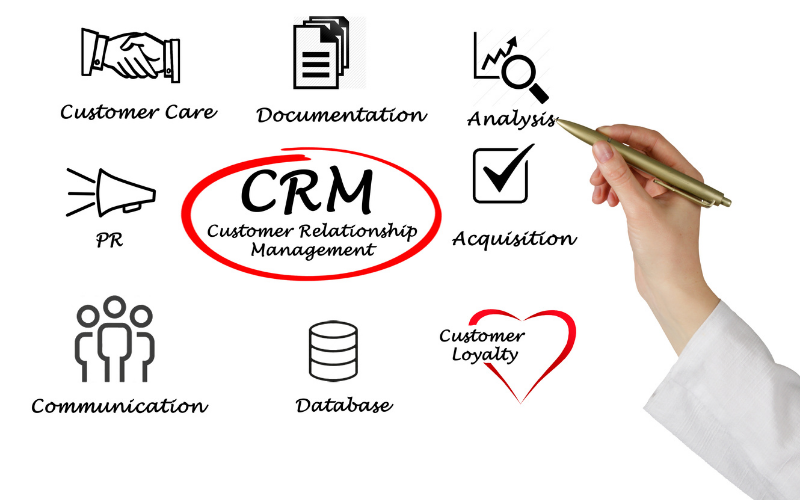Every company needs to do a sales forecast, whether weekly, monthly, or quarterly. Sales forecasts are an essential requirement for all stakeholders. Forecasting is a fundamental tool for businesses to plan, strategize, and make informed decisions.
It helps them estimate future revenue, set goals, make informed business decisions, manage inventory, and supply chain, and improve cash flow management
A good forecast means no surprises in store, funds in the bank and stock in the warehouse. Healthy forecasts protect companies from tough competitive and market conditions and position them better to adapt, plan, and thrive in the present and future.
Based on current industry data and research, it seems most Sales leaders lack confidence in their forecasts, as well as the expertise to improve them. Disorganised and non-formal forecasting processes are a likely culprit.
- 93% of sales leaders are unable to forecast revenue within 5%, even with two weeks left in the quarter.
- 67%
of organizations lack a formalized approach to forecasting altogether.
- 80%
of sales organisations DO NOT have a forecast accuracy of greater than 75%.
- 55%
of sales leaders do not have high confidence in their forecasting accuracy.
(Stats from CSO Insights and Gartner)
Sales forecasting accuracy is a contentious point…
The average current sales forecasting accuracy is in the order of around 50%, so if you were to toss a coin for each of your deals heads you win, or tails you lose. The odds are therefore the same with forecasting, very much not great.
The inaccuracy is a concern and should be handled properly and carefully with everyone fully aware of the levels of accuracy, otherwise, companies may end up lacking enough money in the bank to run payroll and having the wrong stock levels in the warehouse. This can, in turn, lead to poor customer service and, therefore, loss of clients. Then, loss of jobs and cash flow problems. In extreme cases, it can lead to the company going out of business.
So why is this such a problem, why do Salespeople not know what is happening with their customers, why can’t they get this simplest thing right?
This is a common complaint in the industry and there is no magic solution/answer. There is perhaps an assumption that the sales staff know how to do this instinctively, i.e., if they are talented in Sales then this will translate to being good at forecasting said sales. In truth, there is every likelihood there will have been no formal training, and no one potentially has explained to them that the forecast is almost the most important part of their job.
Accurate forecasting is the difference between a professional salesperson and a snake-oil seller. Expectations therefore need to be realistic and openly discussed with the whole team.
So how to plan for the best possible forecasting?
A company should design a sales process that fits their particular business needs;
- This process must have clear and definable stages
with milestones and qualifiers that are known and understood by everyone in the company.
- This process defines the
common language in which deals are discussed, so everyone has a clear understanding of where we are and what needs to be done, and then everyone can get involved and help.
- This process must match your business requirements, there is no one-size-fits-all-all and can be as simple or as complex as required.
- Each stage needs qualification and disqualification
so that if a deal isn’t working out and you are going to lose, then you lose it quickly and you are not wasting further valued time. (We tend to spend more time on deals we lose than on deals we win)
- Every salesperson should take pride in their forecast and accept responsibility for its accuracy.
- And finally, forecast accuracy should be measured as a part of the KPI / bonus plan, and perhaps there should be a competition amongst quota bearers with a monthly prize to acknowledge the importance of forecasting to the business.
Accurate Forecasting makes ‘Selling a Profession.’
There should always be a weekly management review of each forecast; this can be a training exercise for the team or just a way of encouraging the winning of new business. Everyone should have a complete grasp of the details of their deals and the stages and timescales, then the experience and insight of the management can be taken properly into account, and then it becomes a wholly joint effort.
The forecast for the team is the responsibility of the team leader. Once the numbers have been agreed upon, then it can be seen if there is a gap between the projection and sales quota. If this is the case, then a plan needs to be worked on how that gap should be closed. Ideally, these sorts of discussions are best held in a Monday morning meeting,
i.e., a time to stop and make everyone think about the most significant activity for the week, right at the beginning of said week.
In our experience, if you include people from other departments in the review (call) then they become more engaged and start to see the issues and offer support so that business delivery is shared
and not just down to the Sales dept.
Accurate forecasts are important because everyone else in the business depends on them to help do their jobs.
#sales #businessdevelopment #salesmanagement #salestrategy
If this is a problem you recognise and resonate with, then maybe we should be talking.
Thanks for reading,
Paul Lloyd, Sellerly.
MSP/ VAR Sales Problem Solver,
Sales Management Mentor
020 8148 6475 / paul@sellerly.co.uk










